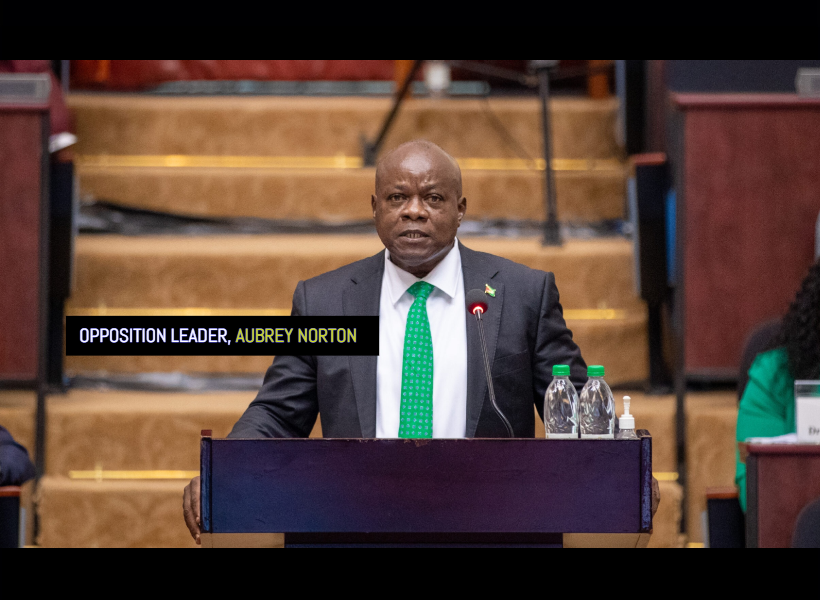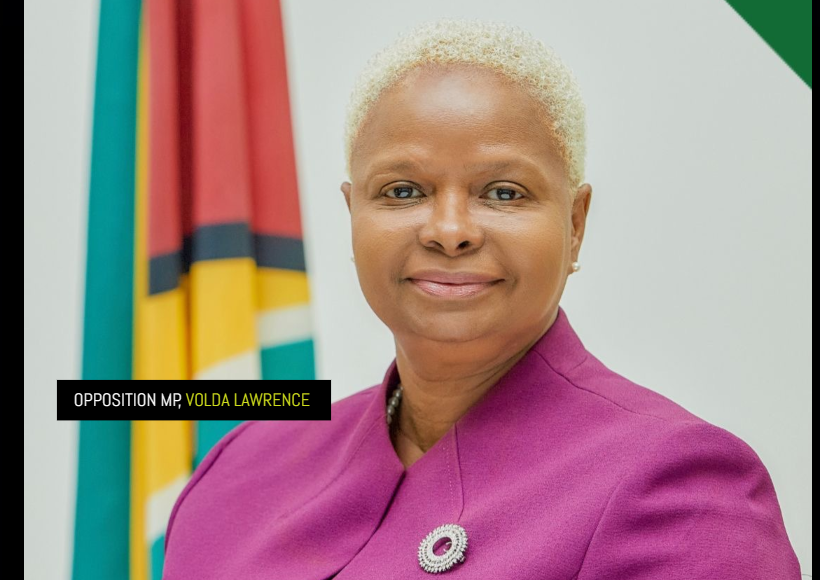Opposition Member of Parliament (MP), Volda Lawrence, expressed strong reservations about the Government of Guyana’s (GoG) plans to amend the Natural Resources Fund (NRF) Act as well as raising the country’s domestic and external borrowing capacity for the third time since 2021.
In her budget 2024 presentation in the National Assembly on Friday, the Opposition MP suggested that the government’s plan to meddle with the Fund will make it worse for the nation’s fiscal standing.
She said in light of discussions surrounding the NRF being overstated to the extent of the unpaid taxes of the oil companies, she expected amendments to be forthcoming to promote more transparent accounting of the taxes to be paid by government out of Guyana’s share from the profits in the Stabroek Block, on behalf of the oil companies.
“Instead, what we are witnessing is the government’s further reach into the Fund for the little intergenerational savings, destined for the Guyanese families,” the MP added.
Lawrence noted that the government had already extracted approximately US$1.7 billion from the NRF and anticipates withdrawing another US$1.1 billion to finance this 2024 Budget, based on the current formula.
To this end, she expressed resistance by the Opposition MPs to any changes to withdrawal rules that would reduce intergenerational savings. Notably, she proposed setting aside funds as a buffer for oil price volatility and demanded a detailed definition of the use and accounting for withdrawn NRF funds. Additionally, Lawrence called for a minimum percentage value in the NRF to be protected as intergenerational savings, with approval requiring a two-thirds majority in the House.
MP Lawrence asserted that constitutional reform matters, including those related to the NRF should be thoroughly considered by the National Assembly.
Lawrence shifted her focus to the government’s handling of debt, criticizing the proposal to raise domestic and external borrowing ceilings. She expressed disbelief that, after two changes to borrowing ceilings between 2021 and 2023, the government was now considering raising them once again.
The MP argued that this signaled the government’s ongoing reliance on debt financing. She projected a 49 percent increase in the public and publicly guaranteed debt from $4.509 billion in 2023 to $6.725 billion in 2024.
“The government’s persistent tampering of the borrowing ceilings over the last three years is indicative of the absence of a medium-term plan and debt strategy, for which several international institutions have been pressing,” she said.
Moreover, Lawrence questioned whether the government’s actions were due to incompetence or a deliberate attempt to create opportunities for misappropriation and non-transparency.
“Why doesn’t the Government’s chief economist follow known economic best practices?” she said.
The MP underscored that it brings no comfort to taxpayers that the government’s borrowing practices are supposedly prudent and sustainable.









